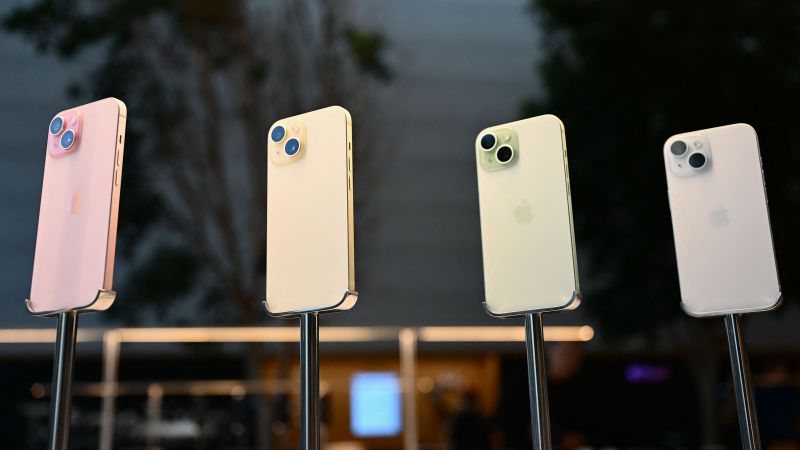Apple hasn’t given users a significant reason to buy an upgraded iPhone for four years, since it rolled out 5G connectivity with the iPhone 12 — a worrying trend for the tech giant’s core business. That could change this week.
The iPhone brought in more than half of the company’s total revenue last year, but sales growth has lagged as customers have been slower to upgrade to new models. Longer upgrade cycles — the time between users’ new phone purchases — currently plague many device companies. But they’ve been especially painful for Apple as it grapples with compounding challenges that also include steep competition in the key China market and a landmark antitrust lawsuit.
Apple is expected to announce new artificial intelligence features at its annual Worldwide Developer Conference on Monday, which could supercharge its products and bring Apple back into competition with much of the rest of the tech world that has already gone full steam ahead on AI. And no product is more important to Apple than the iPhone.
New AI features that provide a compelling reason to upgrade when Apple rolls out the iPhone 16 in the fall could boost the company at a crucial time.
Here’s the thing: No matter how Monday goes, Apple isn’t losing its status as a tech powerhouse anytime soon. The company earned more than $200 billion from iPhone sales alone last year, its stock (AAPL) is up 9% over the past year and it has a healthy services business that helps to balance some of the seasonality of hardware sales.
But analysts say that reinvigorating iPhone sales is key to Apple’s continued growth.
“This can’t be another, ‘Oh, we’ll do something cool later on,’ kind of presentation. They know that,” D.A. Davidson analyst Gil Luria told CNN ahead of WWDC. “For Apple’s stock to work, for the business to grow, we need to hear from them why we should buy iPhone 16.”
Investors are also counting on Apple to prove it can hold its own in the intensely competitive AI arms race at a time when many of its peers have much more clearly articulated a strategy for the next major wave of tech development.
“The timing is critical for Apple. Nvidia just leapfrogged it as the second most valuable technology company behind Microsoft,” which is also seeking to more directly compete with Apple’s device business with new AI-powered PCs, eMarketer senior analyst Gadjo Sevilla said in emailed commentary. “Any misstep by Apple at this juncture could see it lose its traction as a technology leader. “
Apple has for years included AI in its products in small, often invisible ways that nonetheless make life easier for its fans. But now, Apple is set to introduce its most consumer-facing AI updates yet.
The company is widely expected to announce on Monday new generative AI capabilities for iOS, which could especially benefit its Siri personal assistant. An AI-powered Siri could potentially perform specific tasks such as recalling a picture taken years ago on the device or answering detailed questions about the weather, the news or trivia. Over time, it could learn the user’s preferences and even personality, and respond accordingly.
Based on how competitors have already begun to integrate generative AI into their devices, Apple could also introduce other tools, such as the ability to summarize or draft emails.
Historically, Apple is often not the first to introduce new technology, but rather rolls out a premium experience more slowly. Now, the pressure is on for the iPhone giant to wow people with features that go beyond what competitors like Samsung and Microsoft have already introduced for their smartphones and computers.
But beyond the features themselves, perhaps the biggest question going into WWDC is which Apple device owners will be able to use them: Will the new AI tools be accessible on older iPhones or will they be functional only on forthcoming devices set to launch in the fall, perhaps because of the need for powerful new chips or faster processors?
The latter scenario — assuming the features are compelling — could spur the next major iPhone upgrade cycle and have ripple effects for the entire company.
Luria said that boring new features or AI capability that is available to anyone with an older iPhone could cause the company’s stock to drop as low as $160 per share. But exciting new technology that encourages users to upgrade in the fall could boost shares to $240 each. (Apple shares closed the day just shy of $197 on Friday.)
“That’s the key: if it’s compelling and not backward-compatible, Apple will have the first upgrade cycle in four years,” Luria said. “And that will mean a lot for the stock because that was the last time they had a big jump.”
Read the full article here
